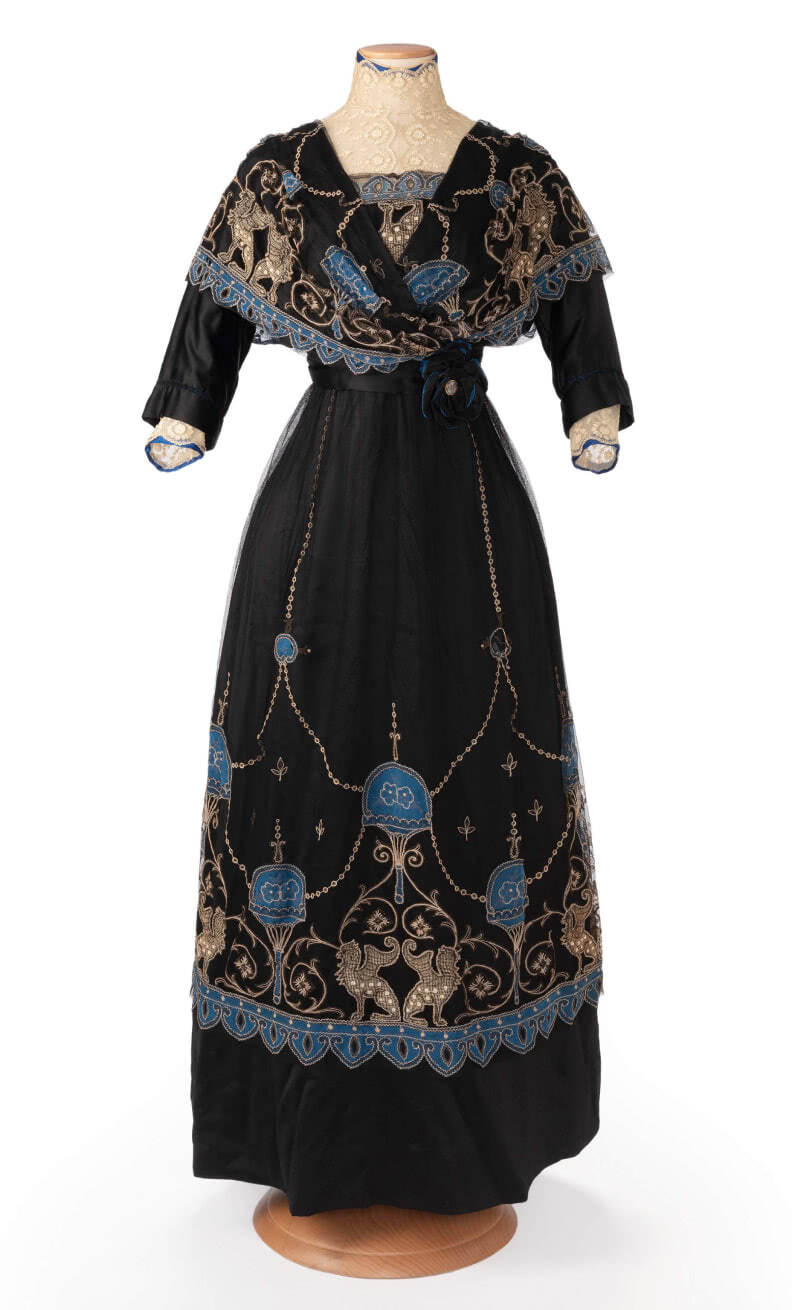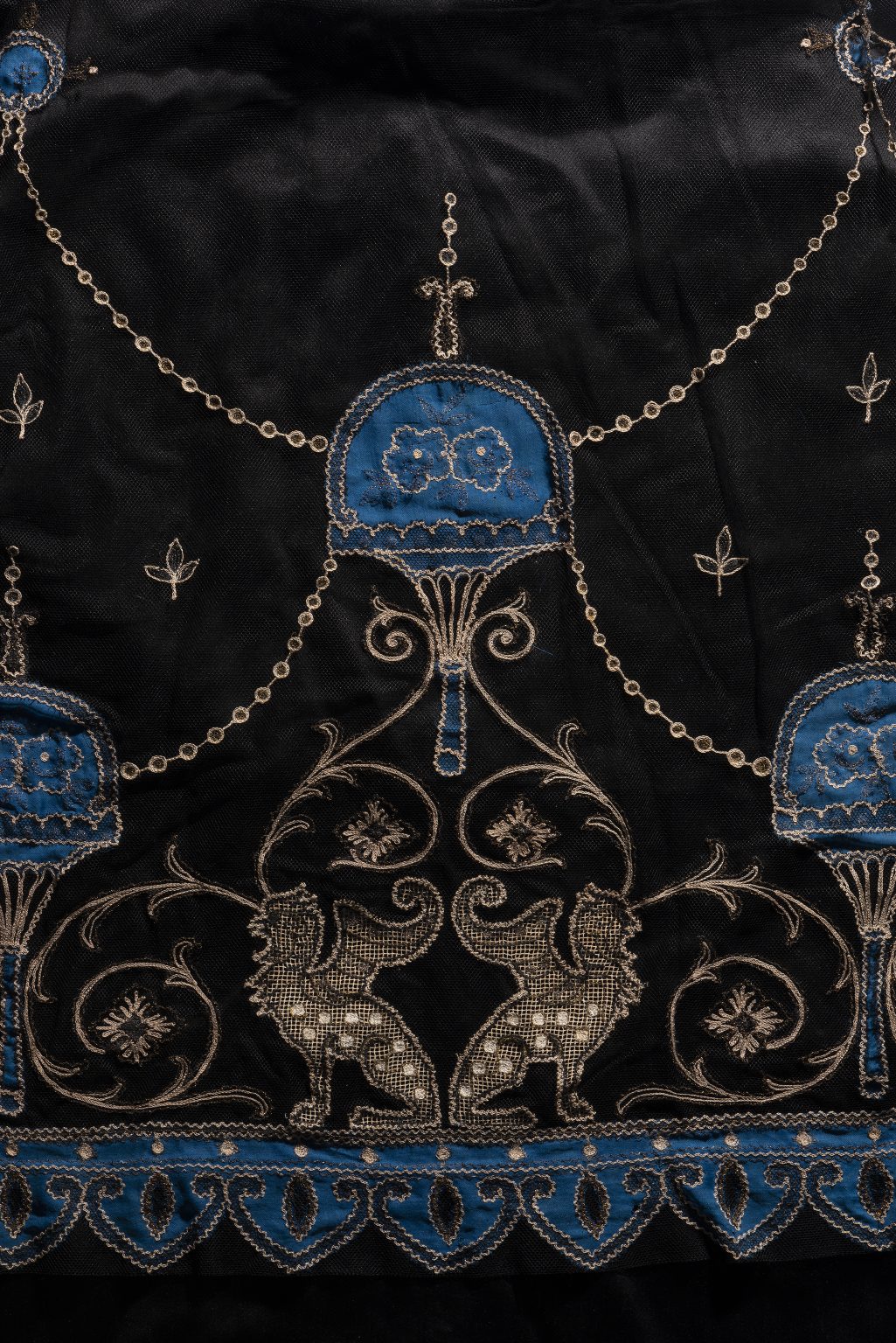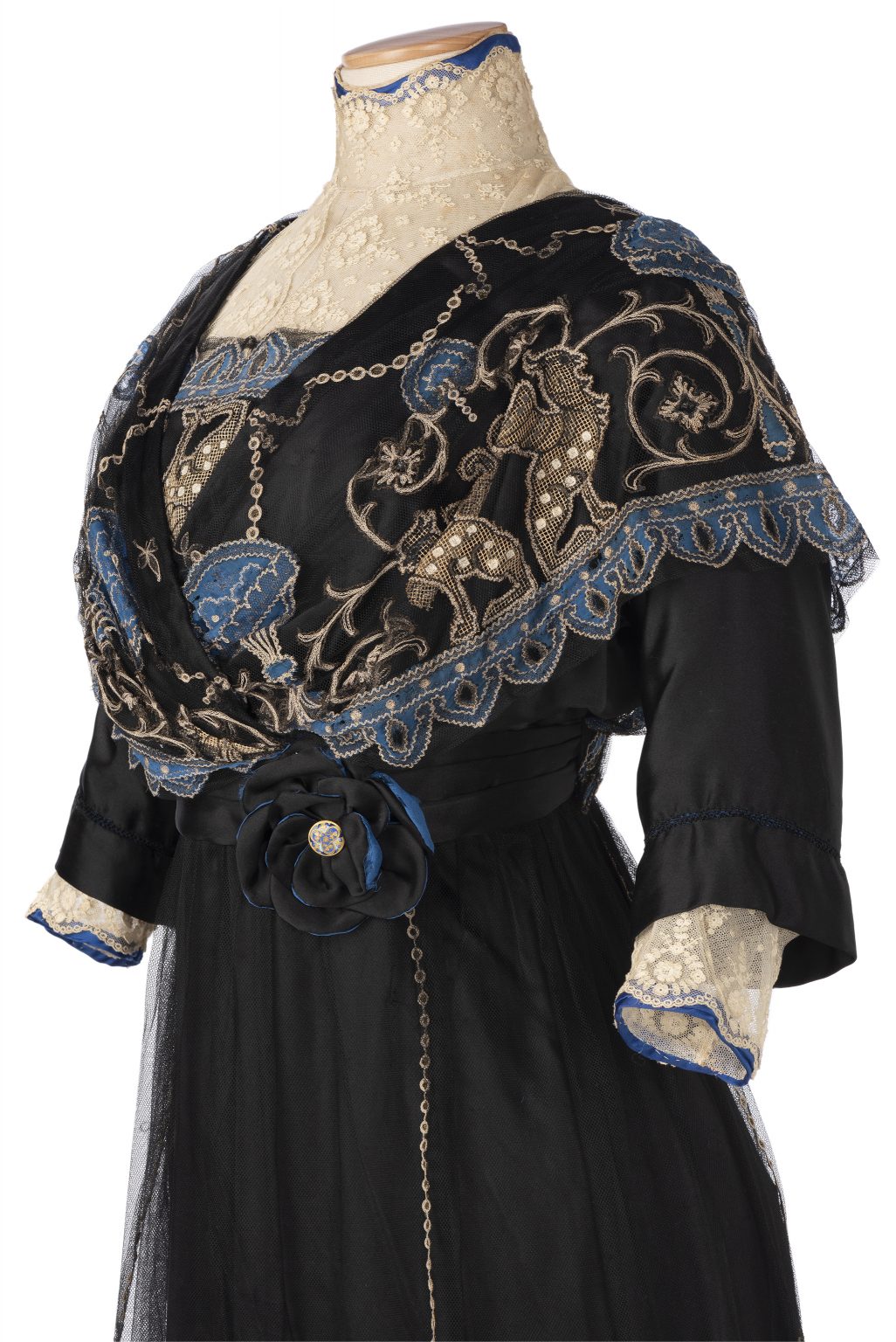
Dress 1908
Empire-line dress in black satin and embroidered tulle, c. 1909-1912, Camilla Colombo Collection.
Details


Historical context
Modernity and innovation trigger the first major step towards globalisation. Rapid urban growth and increased industrial development in the most economically advanced countries attracted workers seeking better living conditions. Ellis Island, which was the symbol of voluntary intercontinental migration, welcomed thousands of immigrants from the Old World every year in search of their fortune. Society began to change: a large proportion of the population now lived in rapidly-growing cities consuming goods and services, they were more literate and had more money and leisure time at their disposal. As a result, leisure activities such as sports, dance halls, cinema and theatre increased. In Paris, audiences were enchanted by Diaghilev’s exotic Ballets Russes. At the same time, however, there were signs of an imminent war: in 1910 the English essayist and politician Ralph Norman Angell-Lane published The Great Illusion in which he stated that it was an illusion to
believe that winning the next war would ensure supremacy over the conquered. The following year the Prussian General Von Bernhardi published a book entitled Germany and the Next War. The growing tension between the Austro-Hungarian Empire and Serbia led to the outbreak of the First World War, which upset the equilibrium in Europe definitively.